9 Sea Turtles Visit the Houston Zoo for Medical Care
Over the past 2 days, our conservation partners at NOAA (National Oceanic and Atmospheric Administration)-Galveston brought 9 sea turtles to the Zoo’s vet clinic to receive medical care.
2 of the 9 sea turtles were loggerheads. These juvenile loggerheads were looked over by vet staff and given medications. They will be treated back to health at NOAA’s facility in Galveston.
6 of the 9 turtles were kemp’s ridleys. All 6 of these turtles were reported to NOAA because they were accidentally caught on recreational fishing hooks. Sea turtles will often eat bait from fishermen because it is an easy meal, however they can get caught and injured on the hooks and line. If reported by the public, like these turtles, the hooks can be removed and the turtles can be rehabilitated and released to the wild. NOAA was able to remove 3 of the hooks before arriving at the Zoo, 2 hooks were removed by Houston Zoo vet staff, and one turtle showed no signs of having an internal hook. Additionally, one of the hook and line turtles had small lesions on its’ flipper that were treated by the vet staff.
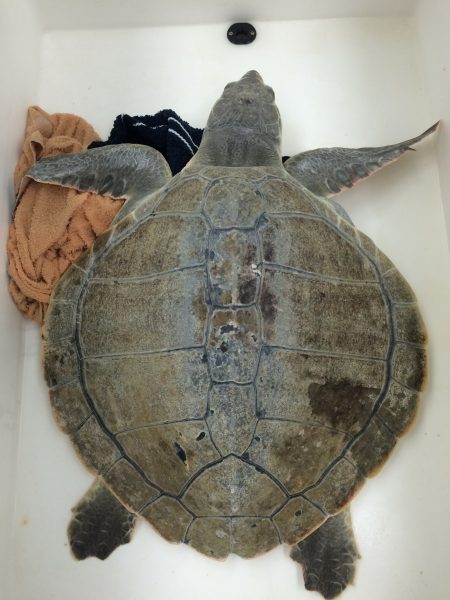
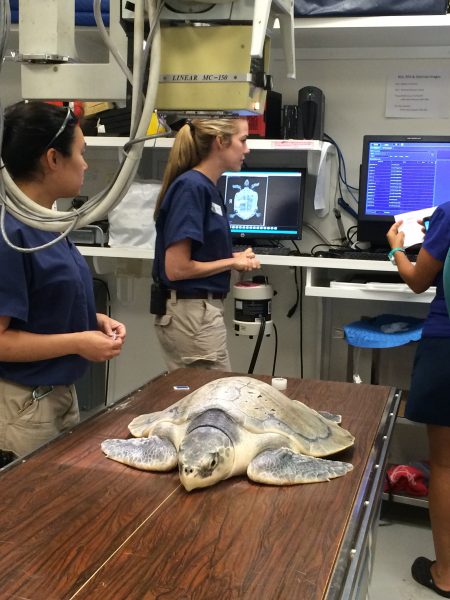
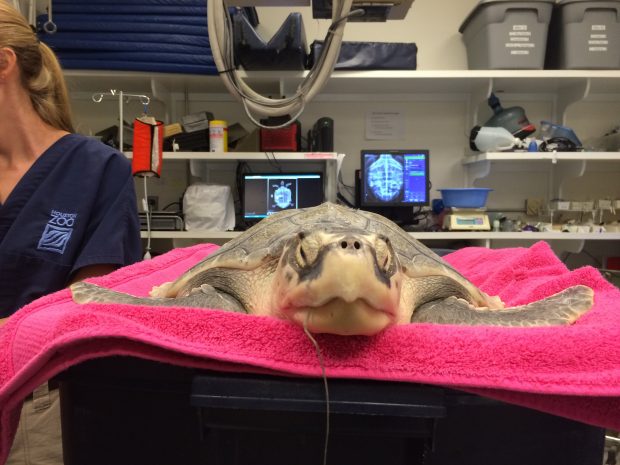
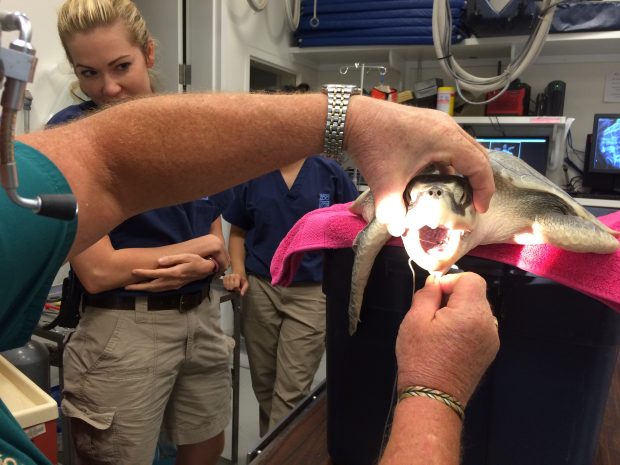
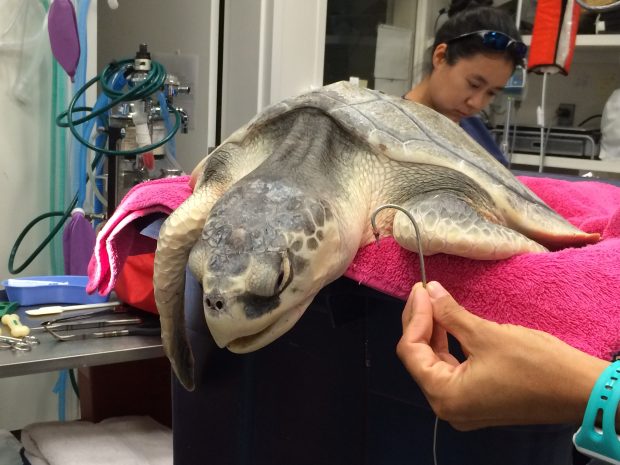
The final turtle to be seen by medical staff today was a small green sea turtle that was found wedged between rocks on the beach. It appeared very tired and in need of medical care. Houston Zoo vet staff prescribed medication and the turtle will be rehabilitated by NOAA staff in Galveston until healthy enough to be released.
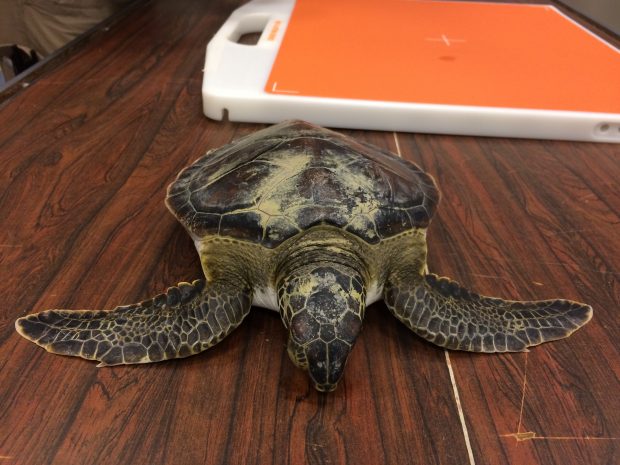
We are so fortunate to have sea turtles in our Texas waters, and it is easy for us to all be sea turtle conservation heroes! A few simple actions taken by our community can help protect sea turtles in the wild:
- If you accidentally catch a sea turtle while fishing, please call 1-866-TURTLE-5 so a biologist can come out and respond to the turtle-giving it adequate care and attention.
- Switch from plastic grocery bags to reusable grocery bags-our plastic bags are light and fly away easily. They can end up in our bayous and float to the ocean. Sea turtles mistake them for jellyfish, and when ingested can make them sick.
- If you eat seafood, choose ocean-friendly seafood! Download the FREE Seafood Watch app to use on your phone. It will help tell you what seafood is best to eat because it is caught or farmed in an ocean-friendly way that protects wildlife like sea turtles, dolphins, and sharks.
For more ways to help save wildlife, visit our Take Action page!
